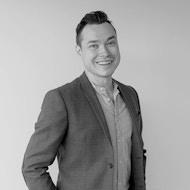Last week, the 35th annual Virginia Film Festival (VAFF) took over Charlottesville for five days of special events and screenings across the city’s collection of local theaters, with VMDO contributing as a local sponsor for the arts. A program of the University of Virginia, the VAFF brings together artists and cinephiles from across the globe to partake in an impressive lineup of festival darlings and groundbreaking indies in the early heat of the 2022-23 awards season. But aside from the starry quality of the program, what struck me was a reminder of the crucial role cinema can play in the building of community. In the aftermath of social distancing and a global pandemic that shuttered many independent arts venues, it was a balm to witness hundreds of movie-lovers come together once again in a darkened theater and engage with cinema as it was meant to be seen.

In his opening night remarks, Jody Kielbasa, VAFF Director and University of Virginia Vice Provost for the Arts, underscored his hope that the medium was finally getting back on its feet. “We all want the arts to come back strong this year,” he confided. Much to the University’s credit, the Festival was able to successfully kickstart that effort. Look no further than the opening screening of “Glass Onion: A Knives Out Mystery.” The twisting, turning follow-up to Rian Johnson’s original “Knives Out” (2019) charmed the sold-out crowd with a healthy mix of comedy, suspense, and star-studded cameos. The raucous applause following Janelle Monae’s final, fiery act of retribution in the film reassured me that not only are the arts “back,” but they are also defining the ways in which we come back together again. The cinema is a truly communal experience and I’m grateful for cities like Charlottesville that continue to support these special, local venues.

At its heart, cinema is also perhaps our most empathetic art form. It is a means by which we mediate and understand the world around us through either escape or confrontation. In some cases, this means re-writing the narrative entirely. I attended a screening of Sally Potter’s “Orlando” (1992), a revolutionary historical epic for its time that pushed the public’s understanding of gender identity and politics. Visually stunning, it was a treat to see this classic of queer film up on the big screen, elevating its significance in the canon and introducing a new generation to its extraordinary vision of the world.
The Festival also grounded itself in its cultural and geographic roots, both in the good and the ugly, through a selection of local films and conversations with Charlottesville-based filmmakers. “The Levys of Monticello”, Dir. Steven Pressman, tells the story of how Thomas Jefferson’s landmark home fell under the ownership of a local Jewish family who all but saved the property from collapse. A fascinating study of historic preservation, the film also reflects on the dark truths of racism and anti-Semitism that continue to plague the historic landmark and our community and culture at large.

For many attendees, powerful documentaries like “The Levys of Monticello” were festival highlights. I suspect this speaks to the quality of the films, but also our desire, deep-down, to confront our harshest realities. VMDO joined the UVA School of Architecture and Division for Diversity, Equity, and Inclusion in sponsoring a screening of “Refuge,” the Katie Couric-produced documentary that feels poignantly current. It explores the town of Clarkston, Georgia, a refugee settlement city and what is commonly referred to as “the most diverse square mile in America.” Through the lens of Clarkston, we meet nearby resident Chris Buckley, a veteran and former Klansman who is forced to confront his own violent racism. This is achieved under the guidance of Clarkston cardiologist, Dr. Heval Kelli, a Kurdish refugee who introduces Buckley to the Clarkston Muslim community and ultimately evolves his views for the better. Directors and UVA graduates Din Blankenship and Erin Bernhardt paint a complex portrait of the American South, one which continues to grapple with a dangerous rise in white nationalism. It was not lost on me the context of screening this film in Charlottesville, a city unfortunately scarred by an infamous white supremacist rally in 2017.

“Refuge” felt personal. But its compassion for its subjects speaks to the healing value of such intimate filmmaking and the powerful social role of the communities we call home. Upon leaving the theater, VMDO principal Joe Celentano said to me, “This is the first time in a long time I’m walking away from a movie feeling hope.”
Perhaps that is my biggest take away from the Virginia Film Festival. Walking from theater to theater under flashing marquees, I was reminded of the ineffable power of cinema to instill hope in these challenging times by providing the means to better understand them. That's why we must expand public access to the art form, and not just to the superhero thrill rides that are bloating the cineplex. Rather, I hope cities continue to support their independent venues that contribute to stronger and more informed communities, together, in a dark room, in front of bright screen. Director Greta Gerwig once said, “When I was little, I thought movies weren’t real. I thought they were a gift handed to us by the Gods.” In my mind, that’s still true- and it’s a gift we should continue to revere as such.


